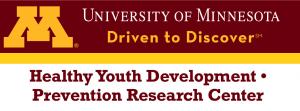Advocates for Youth can offer technical assistance on a wide range of topics including district, state, and national policy, best practices in teaching sexuality education, creating more LGBTQ+ inculsive schools and organizations, increasing the capacity of health care providers to meet the sexual health needs of adolescents, youth-adult partnership models, writing curricula, and/or discrete lesson plans, etc. Please contact us so we can learn more about your needs and how we can best support your efforts.
Training Hub
The Sex Education Collaborative Training Hub lists trainings for sex educators, facilitators, and other professionals on best practices for sharing important information with clients and the public. From teaching anatomy inclusively to effectively addressing bias in the classroom to addressing racial justice and equity in sex education, the Training Hub includes trainings, technical assistance, and policy support from state, regional, and national leaders in the field of sex education.
Please note: The Training Hub includes both in-person and online professional trainings. If you see a training you are interested in and it isn’t listed as virtual, please reach out directly to any of our members to find out what's possible!
Trainings Offered by State-Based and National Organizations
Displaying results 151 - 155 of 172Privacy & Confidentiality for Adolescents Accessing Sexual & Reproductive Health Care
What are the basics of maintaining privacy and confidentiality for adolescents accessing sexual and reproductive health care? Learn as you follow the story of Kendall, a 16-year-old who visits her school-based health center. Please download the Privacy & Confidentiality Worksheet before beginning the course. Throughout the course, you will be asked to reflect and respond to various situations.
- Indicator 1 (K-12): Demonstrate three techniques to create an inclusive and affirming learning environment. (S)
- Indicator 3 (K-12): Describe three elements of a trauma-informed approach to sex education.
Healthy Teen Network customizes techincal assistance and support to meet your unique needs.
Areas of expertise span a wide range of topics across adolescent sexual and reproductive health, evidence-based approaches, curricula, working with diverse youth, training adult professionals, innovation and research, human-centered design, advocacy and public policy, strategic planning, sustainability, and more.
Foundations: Core Skills Training for Sex Education
This one-day Foundations training covers the essential skills for facilitating sex education, including:
- climate building in the classroom,
- understanding state and local sex education policies,
- pedagogical approaches for experiential learning,
- values clarification
- managing personal disclosure,
- and handling difficult questions and harassing comments.
Optional half-day modules for a second day of training include cultural proficiency, LGBTQ inclusion, trauma-informed approaches, and facilitation skills for commonly used sex education strategies.
- Indicator 1 (K-12): Demonstrate three techniques to create an inclusive and affirming learning environment. (S)
- Indicator 1 (K-12): Describe the importance of teachers’ maintaining professional boundaries when teaching sex education.
- Indicator 2 (K-12): List three factors to consider regarding personal disclosure when teaching sex education
- Indicator 4 (6-12): Demonstrate how to use the experiential learning cycle when teaching. (S)
- Indicator 1 (K-12): Explain three reasons why it is important to respond to every question students ask when teaching sex education.
- Indicator 2 (K-12): Demonstrate the ability to effectively respond to three different types of challenging questions. (S)
- Indicator 2 (K-12): Describe state and/or district laws, policies, and standards that relate to sex education where one teaches.
- Indicator 1 (K-12): Explain the differences between personal and universal values relating to sexuality.
- Indicator 3 (K-12): Explain the importance of educators refraining from sharing their personal values when implementing sex education.
- Indicator 4 (K-12): Demonstrate the ability to respond effectively to students’ values-based comments and questions. (S)
Whether you are building support for a new program or service or working to sustain an existing program or service, it’s important to build and maintain relationships with key stakeholders, as well as use effective messages and delivery strategies to mobilize diverse audiences to promote adolescent health.
On a national level, Healthy Teen Network's advocacy efforts are focused around promoting and advancing adolescent sexual and reproductive health programs and services as critical to the well-being of our nation. Healthy Teen Network understands the need to maintain a spotlight on adolescent sexual and reproductive health and promote understanding of the interplay of the environment on sexual and reproductive health outcomes.
Want help in your efforts to build support for programs and services? Healthy Teen Network can work with you to…
Develop campaigns, strategies, and materials to support public policy changes at the state or local levels on issues relevant to youth.
Build support and cultivate relationships with key stakeholders, developing positive community engagement.
Write winning grant proposals in support of your fund development efforts.
Share your successes and tell your story, using strategies such as data visualization.
And more! Reach out to Healthy Teen Network to start a conversation to get the policy support you need.
Additional Trainings offered by out-of-state organizations
- 1 of 70
- next ›
Our experienced trainers help youth-serving adults build their capacity to support adolescents’ healthy youth development and sexual health. We offer evidence-based, fun, interactive adolescent health education and professional development on a range of topics: whether you choose an in-person, full-day course or build your own virtual training event from our flexible menu, we can help make “best practice” your team or agency’s regular practice.



